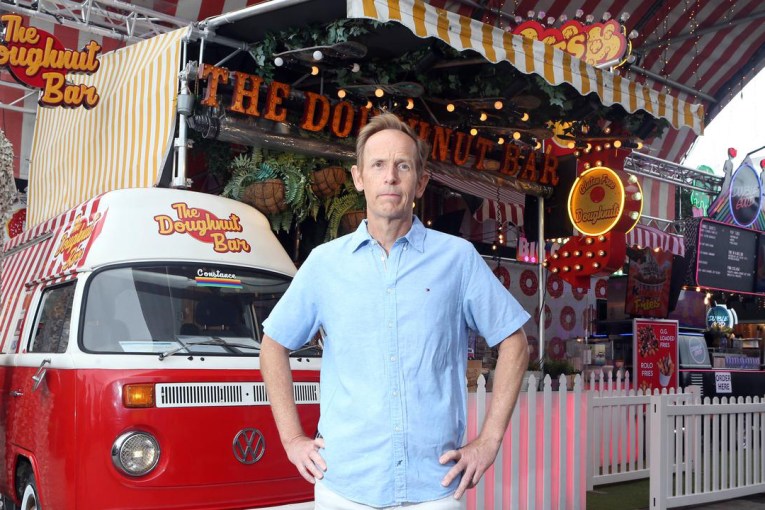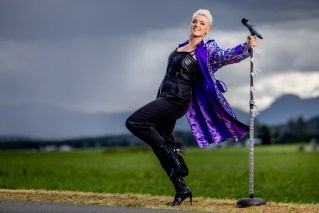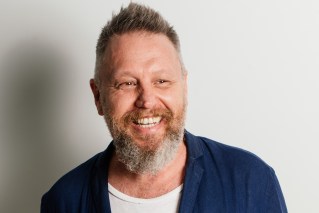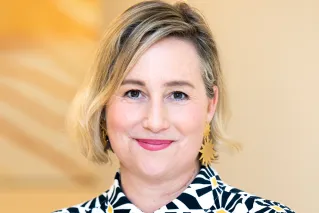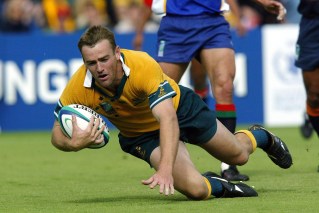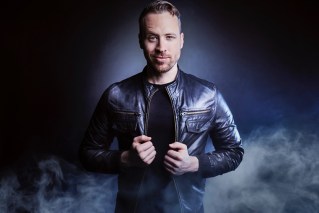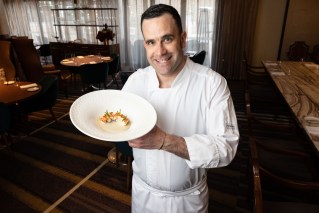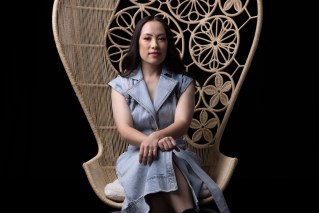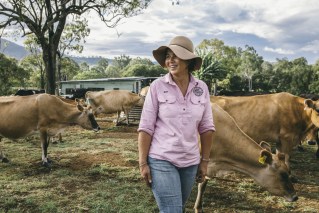An extract from Chris Sarra’s memoir Good Morning, Mr Sarra
Today’s summer reading extract follows Chris Sarra as he becomes the first Aboriginal principal of a rural high-school with low-completion rates, and changes Indigenous education forever. Ten years on, Chris has become Queensland’s Australian of the Year, a subject of ABC’s Australian Story and one of the most outspoken and recognised educators in the country.
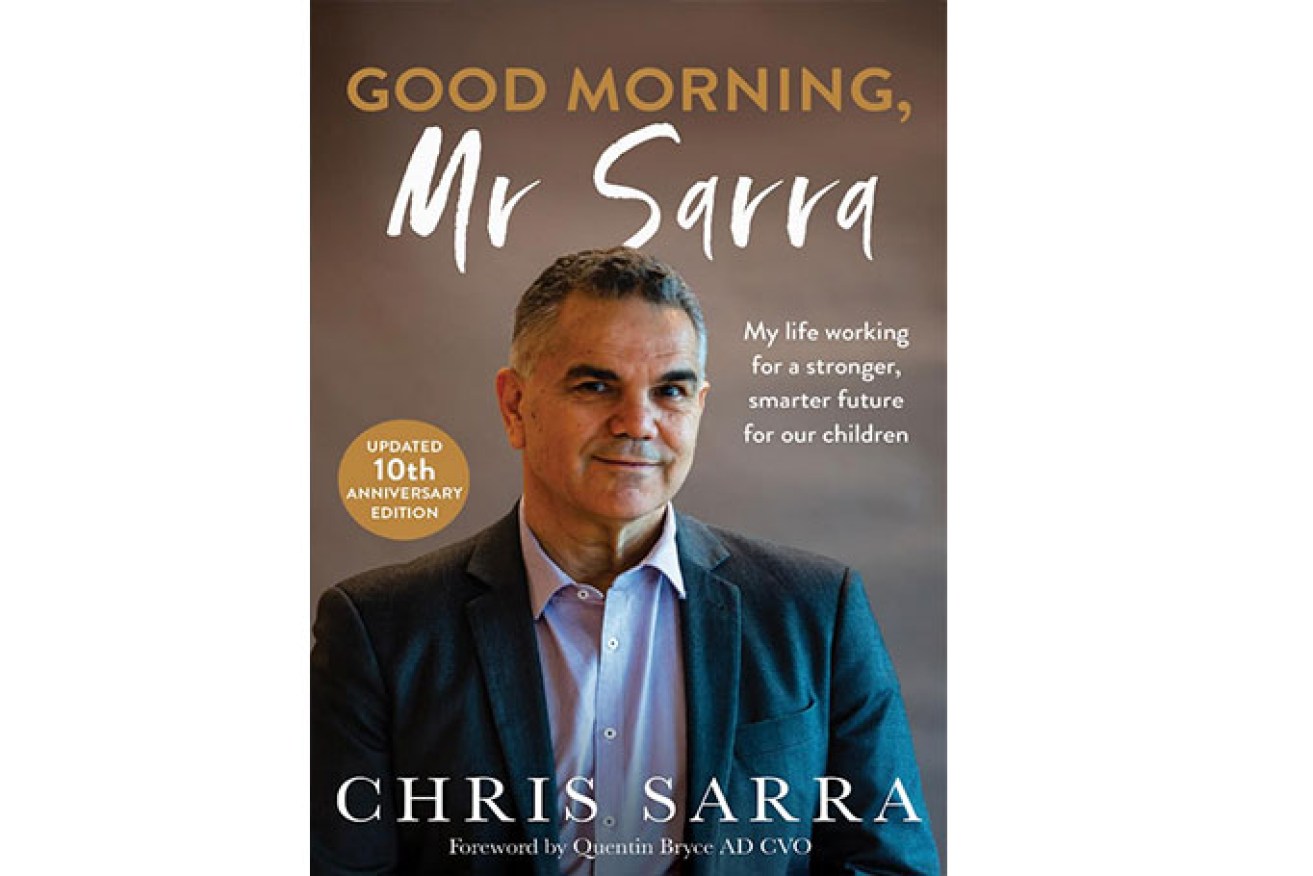
My first day as principal of Cherbourg State School was freezing and windy. I decided to wear a tie, thinking, ‘If kids at other schools see their principal wearing a tie, then these kids deserve to see their principal dressed up nice, too.’ I have always hated wearing a tie and it didn’t take long for me to stop wearing them. Every now and then, though, I would throw one on just to signal I thought they deserved to be surrounded by people dressed as they would in other schools.
I parked my car in the designated spot and took in a few breaths, sizing up the situation that I was in charge of now. There were some kids sitting around in the sun trying to get warm, while others were running around and playing kanga cricket. During the game they would sometimes hit the ball up on the roof of A Block, a predictable double-storey school building. As soon as the ball was on the roof at least two or three kids would shimmy up the drainpipe at the side of the building and run along the top of the building to get the ball.
‘Holy shit!’ I thought. ‘I will be in deep if any kid falls off there!’
I was also struck by the unbelievable amount of rubbish lying around on the ground. The place was filthy. Amid this chaotic scene a young guy drove in the school gate in a bomb of a car, pulled up at the front of the children’s play castle and sandpit, flung the door open to ditch his kids, and then planted his foot to do a complete lap of the play equipment, spinning the wheels a bit for good measure. This seemed to excite the kids who were playing in and around the sandpit. The worn car track around the equipment made me realise this was a regular route for many parents dropping their kids off by car.
The teachers greeted me in the car park and made me feel welcome. It was very nice of them, yet they seemed oblivious to the mayhem surrounding them. This would never happen in a ‘normal’ school. Upon reflection, what I was witnessing was somehow ‘normal’ if other Aboriginal schools I have visited in my travels were to go by. But I was in the position of authority now. From the outset, even before I moved beyond the car park on that first day, it was clear that with this authority I would have to choose whether I would be complicit in such chaos or I would challenge it. There was no real question that there were low expectations at play. I knew very well what it was like to be an Aboriginal student subjected to low expectations. I also knew that things could be much better than this.
*
I had arranged for an assembly of the whole school on the morning of my first day. The bell rang and the teachers gathered together their classes to meet me. Their excitement and curiosity seemed to match my nervousness and anxiety. I am always fascinated at how so many kids can settle down and be quiet in anticipation of whatever words will be spoken to them at school assembly. At the moment of complete quiet, I raised my voice.
‘My name is Mr Sarra!’ I explained. ‘You will refer to me as Mr Sarra!’ I had to get this point across first as teachers were let- ting themselves be referred to as Miss and whatever was their first name. This was not something I could live with in a school as I
harboured a belief in a sense of professional distance in a teacher– student relationship. To me, addressing teachers by their title was a marker of that. As well, if it didn’t happen in a regular school I didn’t want it happening in this school. I wanted this school to be a regular school.
‘Good morning, everybody?’ I said with my strong, brand- new school principal voice.
‘Goooood mooorning, Mr Sarrrr . . .’ they replied, with their voices tapering away with what I guess was a sense of apprehension about getting my last name right.
‘Let’s try that again! My name is Mr Sarra! When I say good morning to you I am acknowledging you and being respectful. I want you to be the same with me. So when I say, “Good morn- ing, everybody?” I want you to say, “Good morning, Mr Sarra”,’ I explained, with my voice tapering upwards for clarity.
‘Good morning, everybody?’ I hollered.
‘GOOD MORNING, MR SARRA!’ they replied uniformly and in a way that was much firmer and more respectful. It may have been a bit pedantic but I felt I just had to get some of these little things absolutely right from the outset. Once this was established I wanted to get on to the main message. I took a deep breath and cast my eyes across a sea of curious black faces.
‘The most important thing that you will learn from me is that you can be Aboriginal . . . and you can be successful. I want you to understand that I feel it is a great privilege to have this chance to work with you. I am here to work very hard, and I want you to work very hard with me. I will say this again. The most important thing you will learn from me is that you can be Aboriginal, and you can be successful. Just because we are blackfullas, that doesn’t mean we have to be on the bottom.’
As I scanned the room I could tell they had never heard any- thing like this before. I doubt the teachers had heard anything like it before either. I was deadly serious, though. Mrs Langton, one of the four Aboriginal teachers on staff, was bursting with pride. Her face was beaming. She was considered an elder by many in the community and I have always thought of her as a strong and exceptional person. In many ways I think this was because she reminded me so much of my mum. She had started her career in education as a teacher aide and, like many other Aboriginal teacher aides, watched with frustration as young white teachers would come and go without ever acknowledging or honouring their tremendous skills and knowledge. Fortunately for the many Aboriginal children she decided not to be a slave to such frustration, and studied to become a teacher. There was no way of knowing on my first day at the school just how powerful Mrs Langton’s presence would be in the school and, indeed, in our entire effort to change the tide of low expectations of Indigenous children in Australian schools.
*
There was a lot to like about the children of Cherbourg. What I liked most about them was their sense of honesty. You usually always got what you saw with them. In fact, I think this is true of many Aboriginal children I have seen across the country. When they are happy and cheerful they laugh loudest and with the brightest faces. When they are curious about you they will prod you, poke you, play with your hair, tug at your clothes, grab your jewellery and check it out, and in the same exchange they will ask you without inhibition the most intimate and incisive questions.
‘How many kids you got?’
‘You got a woman?’
‘You a Christian, ’ay?’
It was always so funny watching the reaction of new people
to the school when confronted by such inquisitiveness anchored by both curiosity and innocence. When they were sad or hurting they would cry, and pull in really tight when you offered them a much-needed hug. When they were angry they would tell you to fuck off with a palpable sense of passion and fire. This never bothered me so much when I knew kids were hurting or angry and confused. Some of them had very complex lives and in many ways had good reason to feel this way. I was certain the hurt I felt about being told to fuck off was nowhere near comparable to some of the hurt they must have felt sometimes as children in complex circumstances. At least they were honest with me and I loved them for that. What I saw was what I got.
This is not to say I was content in an environment where children were telling the teachers to get fucked and throwing chairs around the room, or climbing out the windows of the classrooms if they even bothered to walk in through the door. In many ways their behaviour was terrible, but again I thought it was only because we allowed it to be, rather than expecting behaviour from them that was much more positive. It seemed to me they were screaming out to know where the boundaries were, given that some of them were in a home context that was often volatile and unpredictable.
Regardless of the complexities of the homes of some of them I was still paid to be the principal in the community, and part of what any principal is paid to do is to connect with the children and their parents, regardless of what judgements we might make. For me, I thought it would be a good strategy to sit back and make some sort of assessment of those I believed were the leaders and power brokers in the school and in the community. If I could forge a positive relationship with such key figures I figured I could be much more successful in my role. In such relationships I had to understand that in some ways this would make my role so much easier, but in other ways it would make it so much harder. The mistake many leaders sent to Aboriginal communities make is to think that engaging Aboriginal leadership means bringing Aboriginal people to the table so that they can explain what great plans they have, and what they are going to do to them and their community. True engagement to me has always been about bringing people to the table so we can have an authentic conversation about what our respective priorities are, what our common ground is, what we think the problems are, and what we can achieve together and how.
